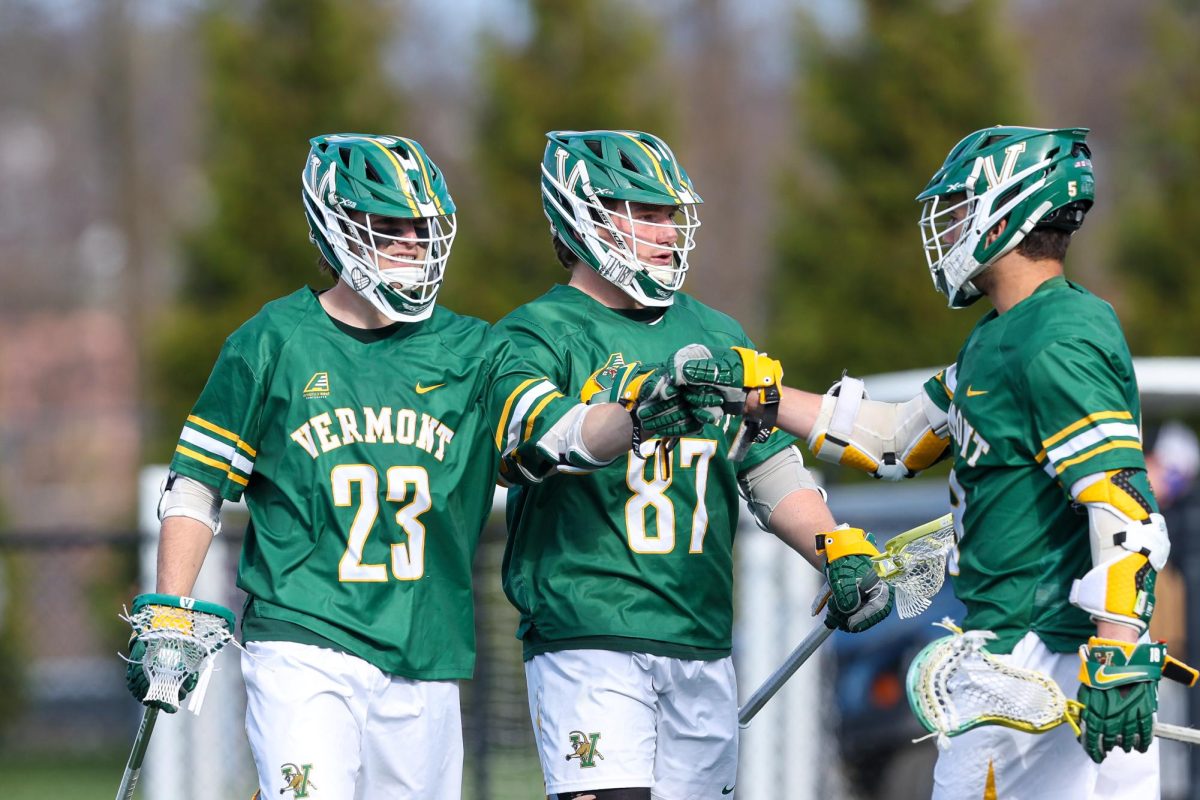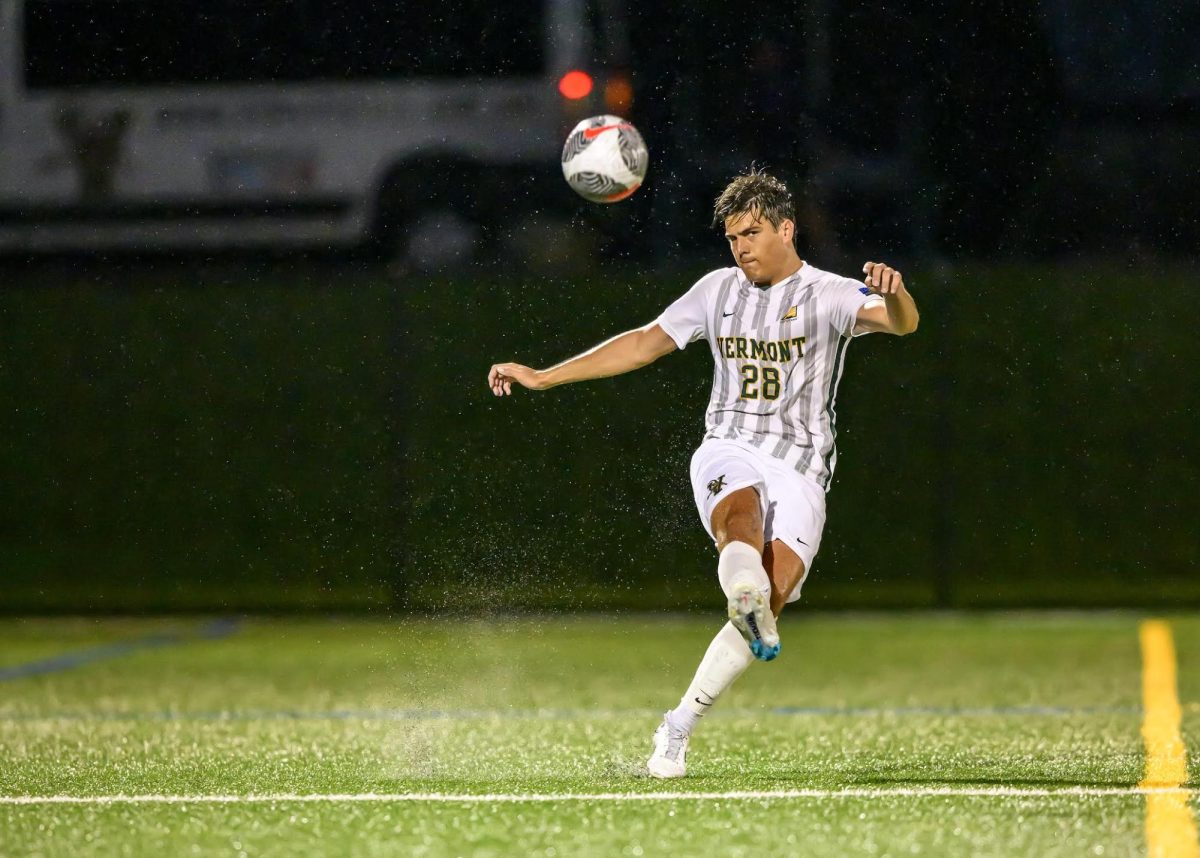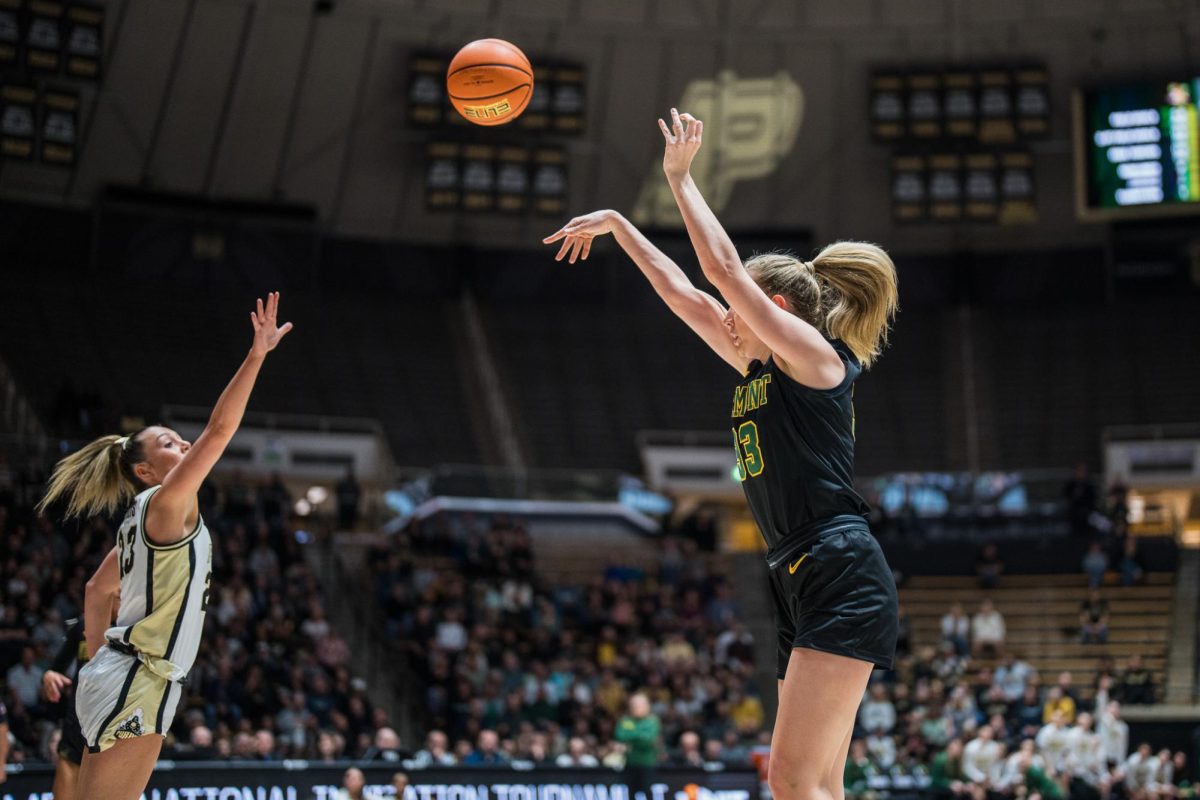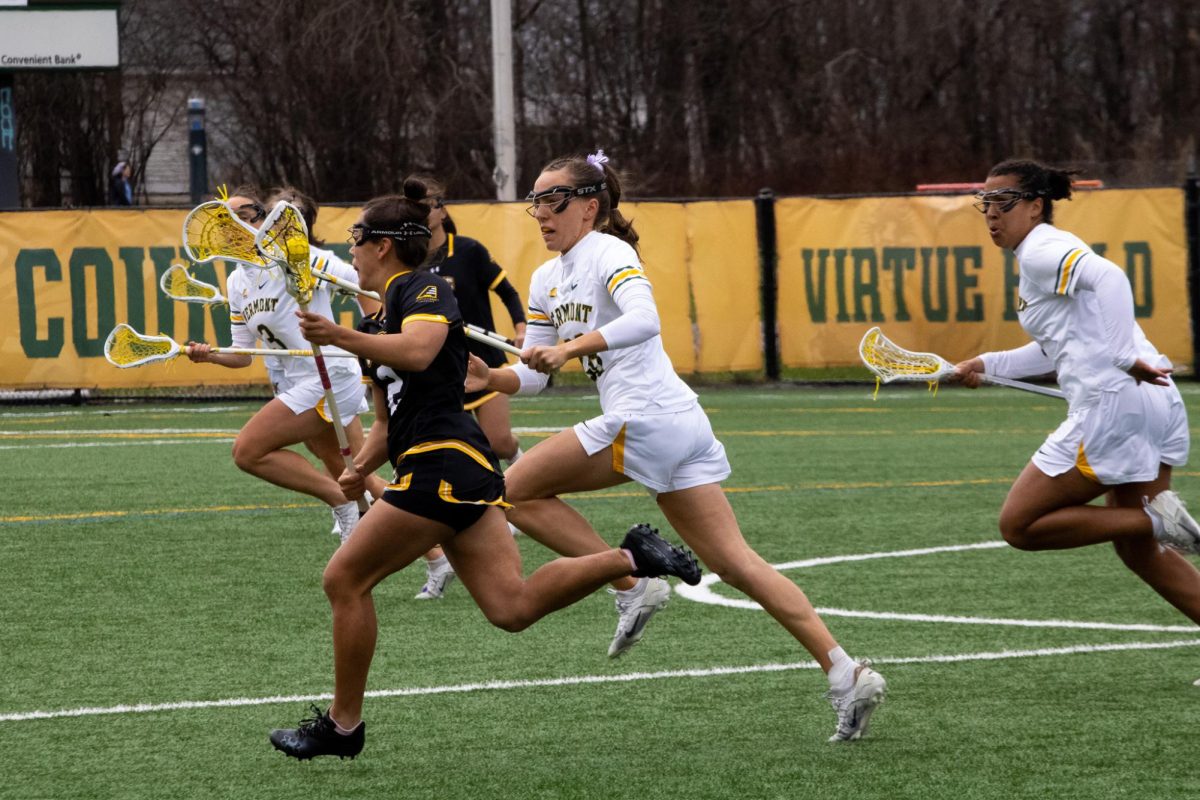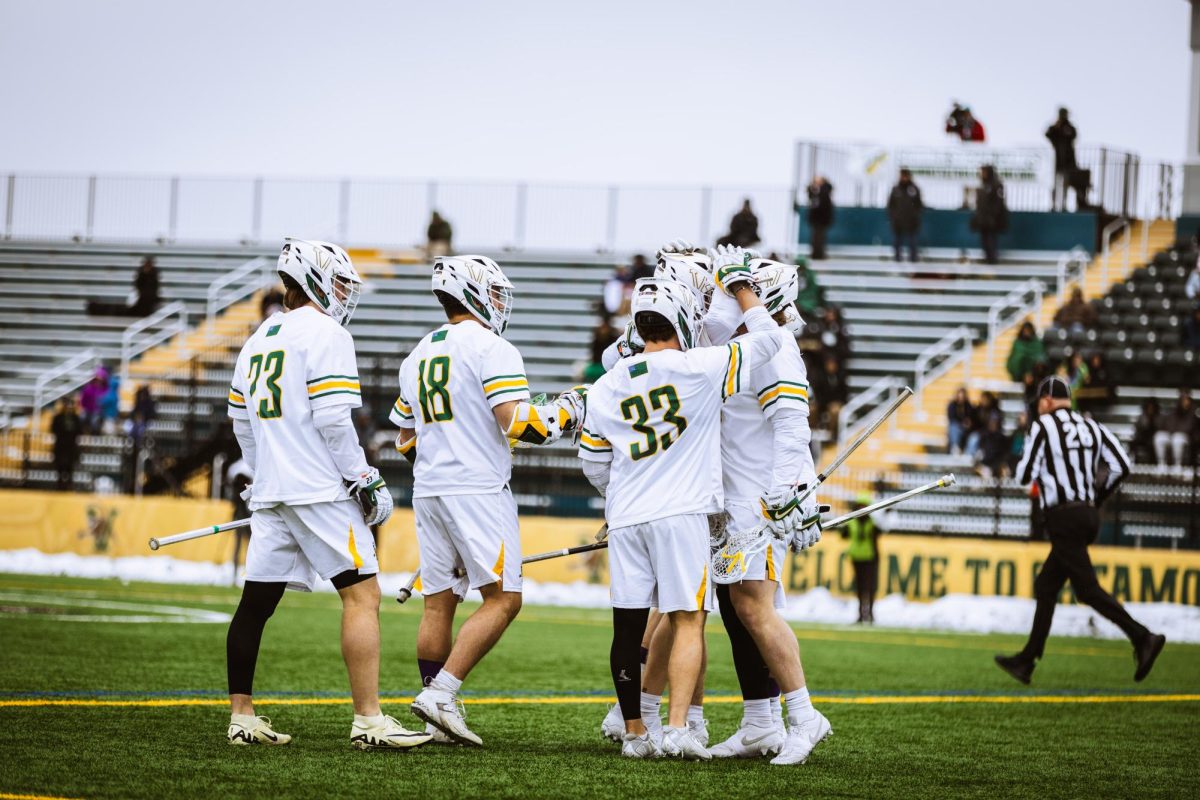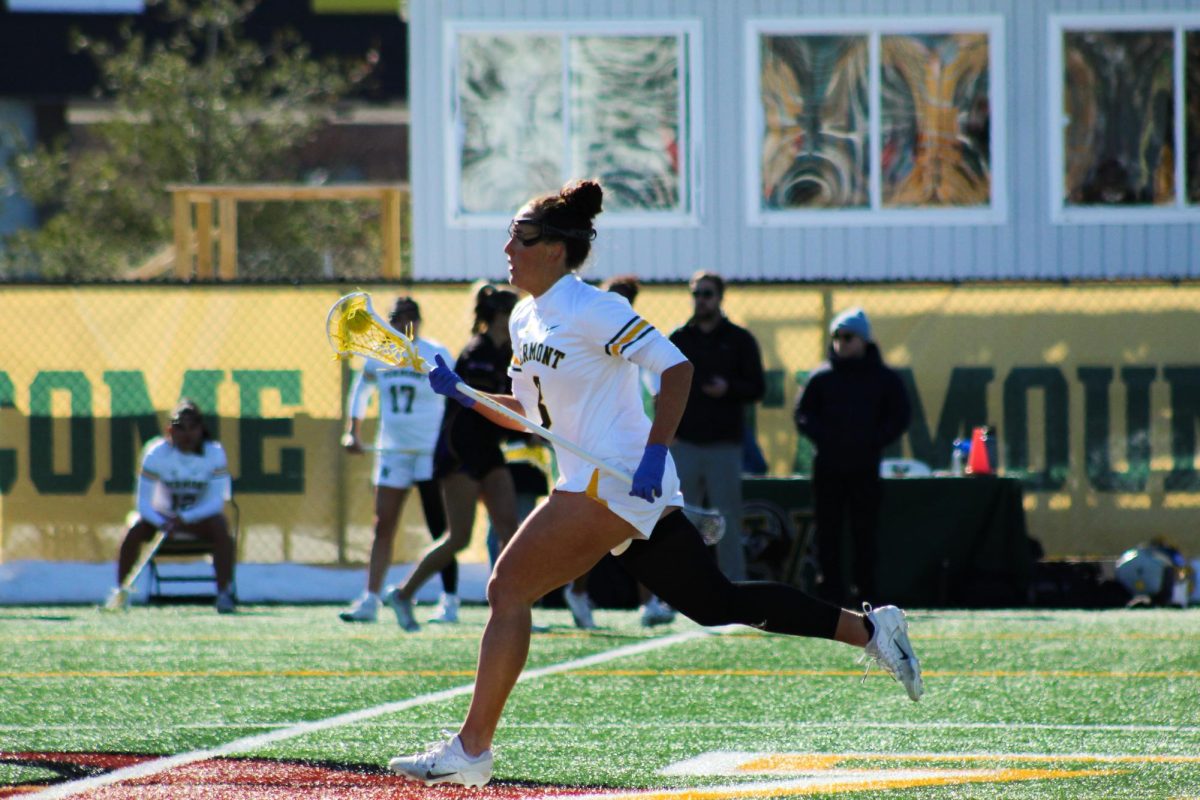When UVM alumnus and Boston Bruins goalie Tim Thomas opted not to attend the team’s celebratory ceremony at the White House, he joined a long list of athletes who have used their fame to make a political statement. Unlike many of these statements, however, Thomas’ fails to resonate.
Thomas announced his decision via Facebook stating, “The federal government has grown out of control, threatening the rights, liberties and property of the people.” For this reason, Thomas continued, “I exercised my right as a free citizen … This was not about politics or party, as in my opinion both parties are responsible for the situation we are in as a country.”
Thomas, who is a known Tea Party supporter and bares the phrase “don’t tread on me” on his goalie mask, certainly has the right to make such political statements, but whether that statement will be recognized as a significant one by his peers and by the public is another issue entirely.
When we look back on the rich history of athletics in our country, there are a few specific examples of political statements that stand out. The most iconic moment of political protest occurred during the 1968 Summer Olympics in Mexico City, where American track and field athletes Tommie Smith and John Carlos took the medal podium and raised their fists in a silent salute to the civil rights movement as the national anthem played behind them. The photo of the two men is one of the most iconic images in the history of American athletics.
For decades, the Olympic Games have been a forum for political protest. In 1980, President Jimmy Carter organized a boycott of the Summer Olympics in Moscow as a response to the Soviet invasion of Afghanistan that took place in the summer of 1979. Four years later, the Soviet Union and 13 other nations boycotted the Summer Olympics in Los Angeles due to, “chauvinistic sentiments and an anti-Soviet hysteria being whipped up in the United States.”
Political protest, however, is not limited to the Olympic stage. In fact, the most controversial political statement ever made was the one by Muhammad Ali in the late 1960s and early 1970s.
Ali, a Muslim and staunch supporter of the American Civil Rights movement, refused to serve in the United States military when he was drafted in 1967. Ali cited his faith as a Muslim and the institutional racism of the United States as the basis for this action. Ali was famously quoted, “I ain’t got no quarrel with them Viet Cong … They never called me ‘nigger.'”
When Ali refused to serve he was arrested and convicted of draft evasion and his professional boxing license was revoked. After a failed appeal, the case was examined by the Supreme Court, where it was eventually overturned in 1971. This sequence of events gave visibility not only to the anti-war movement, but the Civil Rights movement as well. Ali inspired millions of people to support the causes he so vehemently stood up for, and Ali’s legacy as a political symbol rivals his legacy as a fighter.
To even mention Tim Thomas’ political maneuver in the same breath as the courageous actions taken by these three individuals is an insult to their legacies.
Tommie Smith and John Carlos stood on the international stage and raised their fists in the face of racism, returning to America to harassed with hateful ridicule. They sacrificed the glory of Olympic medals for a cause they viewed as more important than their own athletic achievement. Muhammad Ali galvanized millions in support of civil liberties and peace while putting his boxing career second to the causes he believed in.
What did Tim Thomas do? Tim Thomas posted a message to his Facebook page to announce he would boycott a ceremony where the leader of our country would recognize him and his teammates as champions of their sport.
If Tim Thomas has such strong convictions, he should have used the White House visit as a forum to express them. It would have been more effective and legitimate — not to mention he would not have abandoned his team.
Instead, Thomas hid behind a computer screen, using the same forum that is used for insignificant updates of peoples’ lives and pictures of binge drinking to protest the federal government. Which is not exactly standing on the medal podium of the 1968 Olympic Games.
As a UVM student, I am beyond disappointed in Tim Thomas. And if I were a Boston Bruins fan, I would be even more disgusted with him.
Not only did Thomas make a fool of himself for his libertarian stunt, but he completely abandoned the Boston Bruins at a time when they were being recognized for their quintessential embodiment of what it means to be a team. The Boston Bruins are disappointed in him, the University of Vermont should be disappointed him and, Bruins fans, you should be disappointed in him.







